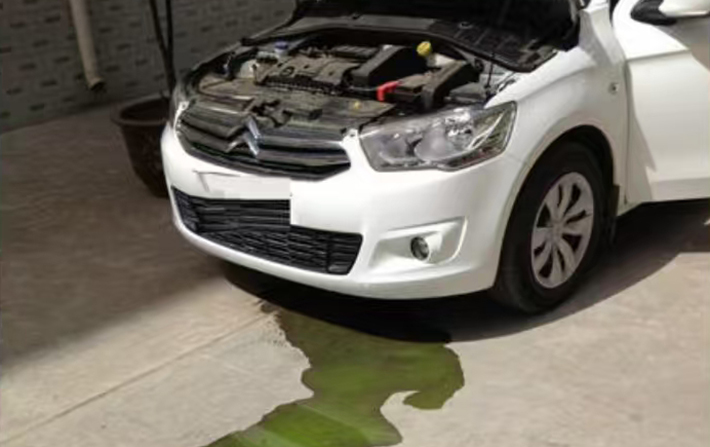Car radiator Leaks: Leak causes, solutions, and prevention measures.
2025-03-20
Car radiator is the core component of the engine cooling system, once the radiator leaks, the loss of coolant, the engine will overheat, light will lead to power drop, increase fuel consumption, heavy may cause engine cylinder pulling, holding tile and other serious failures, and even cause safety accidents. Therefore, it is very important to find and solve the problem of radiator leakage in time.

Common causes of radiator leaks
There are many reasons for radiator leakage, and the common ones are as follows:
Corrosion: The coolant will deteriorate after long-term use, producing acidic substances that corrode the metal pipes inside the radiator, resulting in thinning or even perforation of the pipes.
External damage: the vibration caused by flying stones and bumps on the road may cause damage to the external heat sink of the radiator or the internal pipeline, causing leakage.
Aging: The radiator is in a high temperature and high pressure working environment for a long time, and the rubber seals are easy to age and fail, resulting in coolant leakage from the interface.
Manufacturing defects: The radiator may have problems such as poor welding and material defects during the manufacturing process, resulting in leaks in later use.
Scale blockage: Long-term use of hard water or inferior coolant, easy to form scale inside the radiator, blocking the pipeline, resulting in local overheating, pressure rise, and eventually lead to leakage.
Solutions for radiator leaks
After the radiator leak is found, the corresponding solution should be taken according to the severity of the leak and the specific cause:
Temporary emergency measures:
1. Use radiator leak stopper: There are various types of radiator leak stopper on the market, which can temporarily plug small holes and is suitable for emergency use. However, it should be noted that the leak stopper may block the radiator pipe and affect the heat dissipation effect, so it can only be used as a temporary solution, and professional maintenance is still needed afterwards.
2. Use gum or soap: For minimal leaks, try using gum or soap to temporarily plug the leak, but again only as an emergency measure.
Professional maintenance:
1. Replace the radiator: If the radiator is badly damaged, such as large cracks, severe corrosion, or irreparable leaks, a new radiator needs to be replaced.
2. Welding repair: For smaller cracks or holes, welding repair can be performed. However, it should be noted that welding repair requires professional technology and equipment, and improper operation may cause greater damage.
3. Replace the gasket: If the leak is due to aging or damage to the gasket, a new gasket needs to be replaced.
Measures to prevent radiator leakage
In order to avoid the trouble and loss caused by radiator leakage, the following preventive measures can be taken:
Check the coolant level and quality regularly: Check the coolant level at least once a month and replace the coolant regularly. It is recommended to replace the coolant every two years or 40,000 kilometers, and use high-quality coolant that meets the requirements of the vehicle specifications.
Clean the radiator: regularly clean the dust and debris on the surface of the radiator to maintain a good heat dissipation effect. It is recommended to clean the radiator once a year, either using a high-pressure water gun or a special radiator cleaner.
Avoid using poor quality coolant: Poor quality coolant may corrode the radiator and cause leaks. High-quality coolants produced by regular manufacturers that meet vehicle specifications should be selected.
Timely maintenance of cooling system failure: If other faults are found in the cooling system, such as water leakage, thermostat failure, or fan failure, repair the cooling system in time to avoid radiator leakage.
Drive carefully to avoid collision: pay attention to road conditions during driving to avoid colliding with hard objects, so as not to damage the radiator.
Summary
Radiator leakage is one of the common faults in the use of automobiles, but as long as we understand its causes, master the correct solution and preventive measures, we can effectively avoid the harm caused by radiator leakage, ensure driving safety, and extend the service life of vehicles.